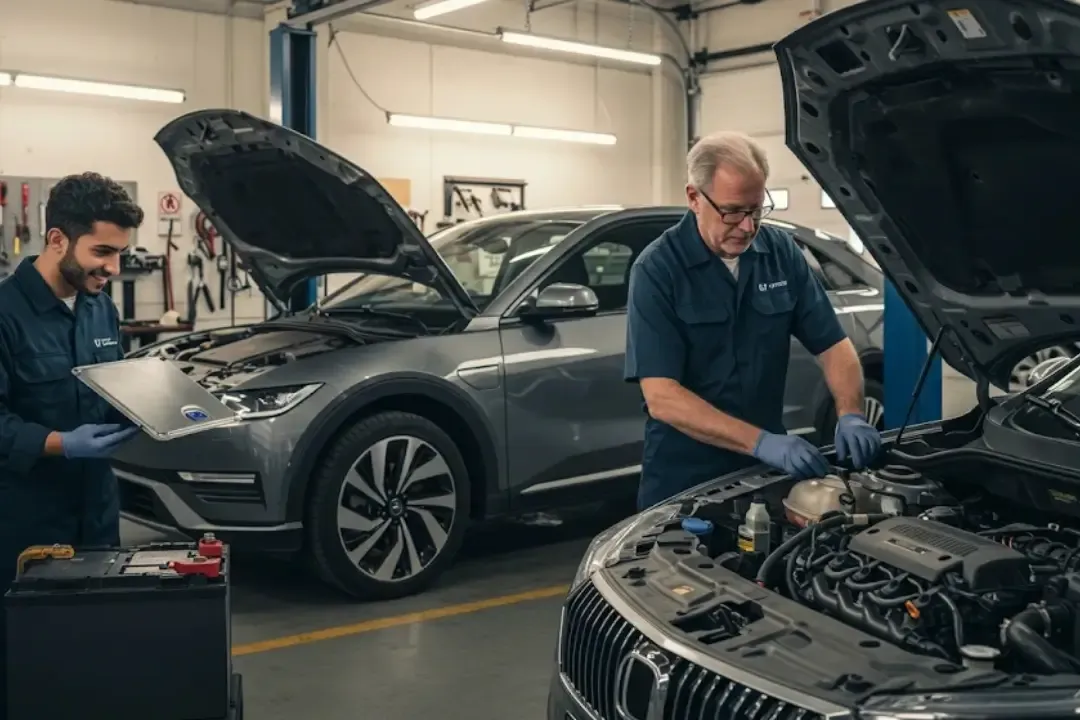EV vs. Gas Car Maintenance Costs: Which One Saves You More?
As the automotive industry continues its shift toward sustainability, many drivers are left wondering whether switching to an electric vehicle (EV) will truly save them money in the long run. Maintenance costs are a significant factor when deciding between an EV and a traditional gas-powered car. In this article, we’ll break down the maintenance costs of both vehicle types and help you determine which one offers the best value for your wallet—and peace of mind.
At Electricar, we’re committed to providing you with the latest, most accurate insights about electric vehicles to guide your transition into greener driving. Let’s dive into the details.
Breaking Down the Basics of Maintenance Costs
Gas Cars: A History of High Maintenance
Gas-powered vehicles have been the standard for decades, but their reliance on complex internal combustion engines (ICEs) makes them prone to wear and tear. Common maintenance tasks for gas cars include:
- Oil changes: Typically required every 3,000–5,000 miles, costing $50–$100 per service.
- Brake pad replacements: Gas cars rely heavily on friction-based braking, resulting in more frequent replacements.
- Transmission repairs: With intricate moving parts, repairs can range from $1,000 to $5,000.
- Exhaust system upkeep: Catalytic converters and mufflers require occasional replacements.
These recurring services add up, making gas car maintenance a costly affair over time.
EVs: A Low-Maintenance Alternative
Electric vehicles, on the other hand, are built with simplicity in mind. Without an engine, EVs don’t require oil changes, spark plugs, or timing belts. Here’s what you can expect in terms of EV maintenance:
- Battery care: Most EV batteries are designed to last 8–10 years or more, and warranties often cover their replacement.
- Brake longevity: Thanks to regenerative braking systems, EVs experience less wear and tear on brake pads.
- Minimal fluid changes: EVs typically require only occasional coolant and brake fluid servicing.
- Software updates: Many EVs receive over-the-air updates to improve performance, often at no cost.
The result? Fewer trips to the mechanic and lower maintenance bills overall.
| Vehicle Type | Annual Maintenance Costs (USD) |
| Gas-Powered Vehicle | $1,000–$1,200 |
| Electric Vehicle | $300–$500 |
According to a study by AAA, EV owners save approximately 50% on maintenance costs compared to gas car owners. This savings translates to thousands of dollars over the lifespan of the vehicle.
For a more detailed explanation of EV savings, check out our article on How to Save Big: Government Incentives and Tax Credits for EV Buyers.
Why Are EV Maintenance Costs Lower?
-
Fewer Moving Parts
Electric motors have significantly fewer components than internal combustion engines, reducing the likelihood of mechanical failures. -
Regenerative Braking
EVs use regenerative braking to convert kinetic energy into electricity, which recharges the battery. This system not only extends brake life but also enhances energy efficiency. Learn more about How Regenerative Braking Works in Electric Cars. -
No Oil Changes
One of the most frequent (and costly) maintenance tasks for gas cars is eliminated entirely with EVs. -
Advanced Warranties
Most EV manufacturers offer comprehensive warranties, including 8–10 years of coverage for the battery and drivetrain.
Additional Savings with EVs
On top of lower maintenance costs, EVs offer additional financial benefits:
- Government incentives: Many countries provide tax credits and rebates for EV buyers. Learn more about these benefits in our guide, How EV Tax Credits and Incentives Can Save You Money.
- Energy efficiency: Charging an EV is typically cheaper than fueling a gas car, especially with off-peak electricity rates.
- Longevity: EVs are built to last, with many models maintaining their performance for over a decade.
What About Battery Replacement Costs?
One common concern among prospective EV buyers is the cost of battery replacement. While it’s true that EV batteries can be expensive (ranging from $5,000 to $20,000), advancements in technology are driving prices down. Additionally, most manufacturers provide warranties that cover battery replacements for up to 8 years or 100,000 miles, ensuring peace of mind for owners.
Explore the latest advancements in EV battery technology in our article, How Solid-State Batteries and Fast Charging Are Revolutionizing Energy Storage.
The Verdict: EVs Are the Clear Winner
When it comes to maintenance, electric vehicles offer undeniable savings compared to their gas-powered counterparts. By eliminating oil changes, reducing brake wear, and minimizing the risk of mechanical failures, EVs provide a cost-effective and eco-friendly solution for modern drivers.
If you’re considering making the switch, check out our comprehensive guide, How to Transition from Gas to Electric Vehicles, to get started on your journey toward greener driving.
External Resources for Further Reading
For those seeking additional insights, here are some valuable resources:
- U.S. Department of Energy: Benefits of Electric Vehicles
- Consumer Reports Study on EV Ownership Costs
By combining these external insights with the wealth of information available on Electricar, you can make an informed decision about your next car purchase.
Final Thoughts
The shift toward electric vehicles isn’t just about embracing sustainability—it’s also about making smarter financial decisions. With lower maintenance costs, government incentives, and long-term savings, EVs are a worthy investment for the future.
Stay tuned to Electricar for more expert advice, in-depth comparisons, and the latest updates on the EV revolution.






